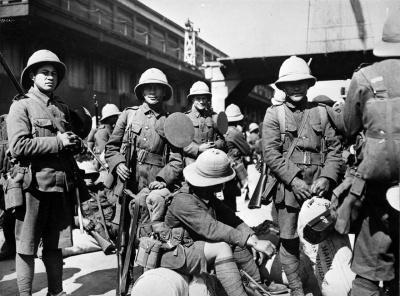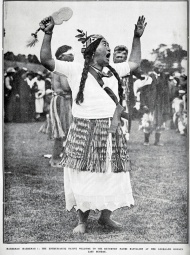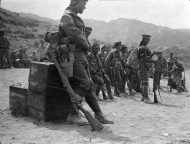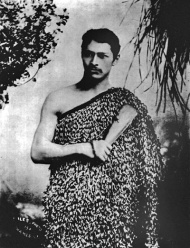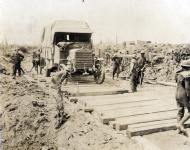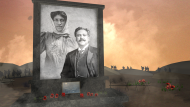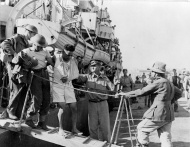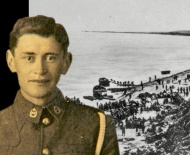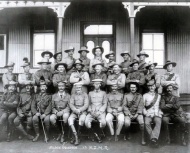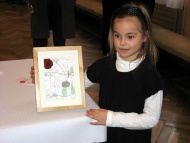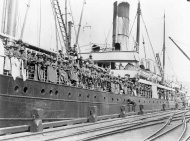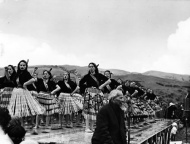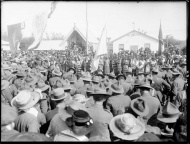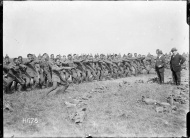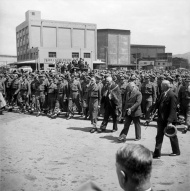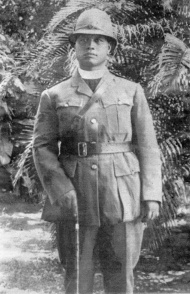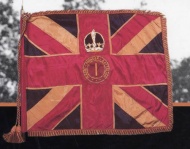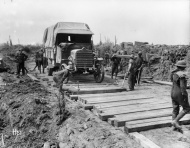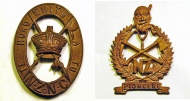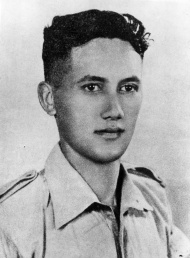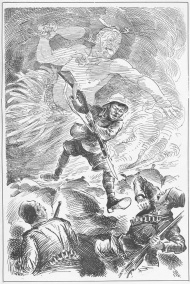Articles
Māori War Effort Organisation
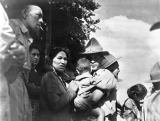
The Maori War Effort Organisation was formed during the Second World War to assist with recruitment for the forces and war-related service.
-
Page 2 – Origins
Assisted by two other Ratana-Labour MPs, Eruera Tirikatene and H.T. Ratana, Paraire Paikea drafted a scheme for an organisation to handle Maori recruitment and war-related
-
Page 3 – Difficult times
When the Maori War Effort Organisation was established, the government had estimated that it would have a six-month life at a cost of £7,000. In 1943 Paikea asked that
Māori and the First World War
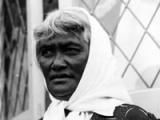
Māori reactions to serving in the First World War largely reflected iwi experiences of British actions in the 19th century.
-
Page 2 – White man's war?
Imperial policy initially doubted the wisdom of 'native' troops fighting a 'white man's war'.
-
Page 3 – Māori objection to conscription
Māori served in the First World War in the Maori Contingent. At home, some Māori strongly opposed conscription.
-
Page 4 – Further information
Books and links relating to Māori in New Zealand during the First World War.
Conscientious objection and dissent

There are always supporters and opponents of a country fighting a war. Over 2500 conscientious objectors lost their civil rights in New Zealand for refusing to serve in the First World War.
- Page 1 - Conscientious objection and dissent in the First World WarThere are always supporters and opponents of a country fighting a war. Over 2500 conscientious objectors lost their civil rights in New Zealand for refusing to serve in the First
Māori and the Second World War
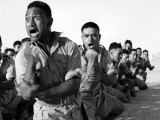
Despite some opposition, nearly 16,000 Māori enlisted for service during the Second World War. By 1945, 28 (Maori) Battalion had became one of New Zealand's most celebrated and decorated units. But Māori contributed to the war effort in many different ways, at home and overseas.
-
Page 2 – Response to war
Māori leaders offered men for both home defence and overseas service, and Māori requests for their own military unit followed, although not all wanted a Māori battalion.
-
Page 3 – Achievements
The 28th (Maori) Battalion established a formidable reputation as one of New Zealand’s finest fighting forces.
-
Page 4 – The home front
Maori were active on the Home Front, involving themselves in the huge fund-raising and production efforts that New Zealanders undertook during the 1940s.
-
Page 5 – Impact
The Second World War was a significant event in terms of Māori–Pakeha relations, and the reputation of the Maori Battalion was a source of great pride to the wider New
Māori in the NZEF
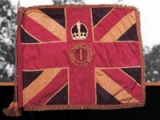
More than 2000 Maori served in the Māori Contingent and Pioneer Battalion during the First World War
-
Page 2 – Maori Contingent at Gallipoli
The first Maori Contingent sailed from Wellington aboard the SS Warrimoo in February 1915. The contingent served on the Gallipoli Peninsula.
-
Page 3 – Pioneer Battalion
In early 1916 the Maori Contingent ceased to exist and was replaced by the New Zealand Pioneer Battalion.
-
Page 4 – On the Western Front
The New Zealand Pioneer Battalion arrived in France in April 1916. It was the first unit of the New Zealand Division to move onto the bloody battlefield of the Somme.
-
Page 5 – Further information
Further information about Māori in the First World War.
South African 'Boer' War
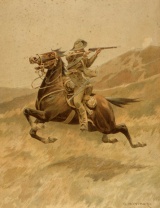
The South African War of 1899-1902, often called the Boer War (sometimes the Second Boer War), was the first overseas conflict to involve New Zealand troops
- Page 8 - Māori and the warMany Māori supported New Zealand's involvement in the South African War and some were keen to enlist. Although Māori were officially excluded from service in South Africa, a
Biographies
-
 Callaway, John Walter
Callaway, John Walter
John Walter Callaway (Wāta te Wahahuia) or Walter, as he was commonly known, is credited with being the first Māori to serve in the South African War.
Read more... -
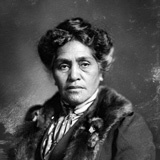 Carroll, Hēni Materoa
Carroll, Hēni Materoa
Hēni Materoa-Carroll helped to raise funds for Māori soldiers serving abroad during the First World War, mainly through the Eastern Maori Patriotic Association.
Read more...
Related keywords
- WW1
- gallipoli campaign
- wellington city
- maori contingent
- WW1 home front
- masterton
- fundraising
- maui pomare
- pioneer battalion
- gisborne
- whanganui city
- sari bair offensive
- south african war
- walter callaway
- boer war
- Maori MPs
- maori war effort
- te puea herangi
- transport
- western front
- passchendaele offensive
- horses
- artillery
- conscription
- WW1 stories
- narrow neck camp
- pacific peoples
- charles bennett
- casualties
- battle for crete
- peter buck
- thomas mackenzie
- ngati raukawa
- chunuk bair
- otaki
- WAAF
- battle of the somme
- te kao
- flags
- war objects
- apirana ngata
- victoria cross
- maori battalion
- ngarimu
- putiki
- moutoa
- haka
- joseph ward
- WW2
- te aitanga-a-mahaki
- rongowhakaata
- heni materoa carroll
- james carroll
- battle of messines
- le quesnoy liberation
- anzac
- ngati kahungunu
- religion
- rotorua
- north african campaign
- haane manahi
- te arawa
- race relations
- badges
- insignia
- alexander godley
- henare kohere
- trenches
- protest
- cartoon
- recruitment
- tainui
- waikato
- conscientious objection
- rua kenana
- kingitanga
- pacifism
-
Main image: Native Contingent soldiers depart Wellington
Māori soldiers of the Native Contingent waiting to board the troopship HMNZT Warrimoo, Wellington wharf, 14 February 1915.

